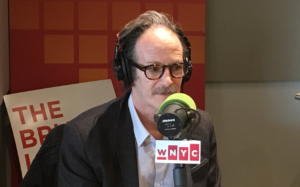Yes, YES, and YES!!!
Every syllable in the column linked below has the ring of urgent necessary truth. And one paragraph in particular explodes off the screen like a distress flare on a dark ocean.

The writer is Monica Hesse, the novelist and star columnist for the Washington Post. The title of her piece is “Things I do not ever need to hear or read about a shooter again.” It is in reference to the massacre last week by Robert Aaron Long of people, mostly Asian women, in Atlanta.
With restrained contempt, Hesse ticks off a partial list of the inanities, evasions, and pseudo-diagnoses that clot the accounts of this and other mass-shooting atrocities: The shooter was having a bad day. The shooter’s family was shocked. The shooter was a churchgoer. The shooter . . .
I read and I nodded. And yet I kept wondering: will she get there, will she get there, will she get there . . . ?
And then in the thirteenth paragraph she got there:
“I would, however, love to hear about mental health. Let’s have that conversation. Let’s have symposiums and colloquiums and serious studies and interventions — my God, let’s talk about mental health. But I do not need to hear about it from the politicians who, as soon as they are given the opportunity, slash community health budgets, show more fealty to insurance companies than their constituents and refuse to address the poverty and other underlying conditions that can make it difficult or impossible for Americans to seek quality mental health care.”
There it is. The Great Unspoken. Mental illness as a possible trigger of violent crime.
It’s hardly as though serious mental illness—psychosis—is a taboo subject per se. Books, news outlets, and advocacy groups are tackling the topic with increasing frequency and candor, and that amounts to a societal breakthrough. Yet roadblocks remain in place to deflect critical areas of understanding. Some are understandable—and still misplaced.
No one wants to sanitize an act of lethal brutality by explaining it away as (merely) the result of a chronic brain disease. One of my closest friends, an intelligent and gifted journalist, emailed me just last week:
“I have a mixed reaction to coverage of the Atlanta shooter. Is he mentally ill? Maybe… but it’s still a hate crime, and clearly did target Asian women. And that can’t get lost right now and rationalized as ‘just’ the deranged action of a single man. Not with the rampant hate that Trump and his ilk have unbottled. He’s a religious nut job, but whether he has [a serious mental illness] . . . hard to say.”
Of course it’s hard to say. It’s impossible to say from a distance, and irresponsible to say without proof. And “proof” in matters of mental illness is elusive, to put it mildly.
But here is the distinction that I believe Monica Hesse is making, and that more journalists and experts should be making: To raise the question of psychosis in a violent crime is not the same as to assert it.
I have scanned hundreds of internet sites in the week since Long, 21, murdered eight people, including six Asian women, at three massage spas in Atlanta. The stories repeatedly cite a handful of possible motives: it was a hate crime. It was part of the rising rate of hate crimes against Asians. Asian women. Robert Long was having girlfriend problems. Long was having a bad day (this from the sheriff in charge).
Still, the only times the possibility of mental illness came up, the theoretical context was “sex addiction,” Long’s own explanation. (The Diagnostic and Statistical Manual of Mental Disorders does not list “hypersexuality” as a mental disease.) At 21, Long was in the prime demographic for the onset of schizophrenia, a genetic disease apart from other complaints of the mind. Yet I have seen no speculation that Long might have been psychotic (the most dangerous symptom of the disease). Far from “rationalizing” his lethal actions as psychotic, the stories I’ve read do not mention psychosis at all. Why not?

Misplaced ethical restraint? Most responsible people in the media, like my friend, are reluctant to imply that this brain disorder and violence are bound together. And indeed they are not bound together. The recently departed Dj Jaffe, a statesman of mental-illness advocacy and policy research, specified again and again that it was the untreated and unmedicated victims of madness who posed danger to others—and themselves. Jaffe’s message scarcely seems to have penetrated beyond the “archipelago” of the suffering and (some of) their caretakers.
Long’s parents stated that their son did not take medications; nor, despite increasingly erratic behavior, was he diagnosed.
Please mark me well. I am not declaring that Robert Aaron Long is schizophrenic. I am not suggesting that this and the other theories are mutually exclusive.
What I am declaring and suggesting is this: severe mental illness remains at once a dreaded and a formless presence in American thought. Dreaded because it is a malady on a par with cancer. And formless because (as with cancer) stigma has retarded education, policymaking, and enlightened criminal-justice reform in regard to it.
Monica Hesse’s words remain as succinct and powerful as anything I have contributed here:
“Let’s have symposiums and colloquiums and serious studies and interventions — my God, let’s talk about mental health.” And: “But I do not need to hear about it from the politicians who, as soon as they are given the opportunity, slash community health budgets, show more fealty to insurance companies than their constituents and refuse to address the poverty and other underlying conditions that can make it difficult or impossible for Americans to seek quality mental health care.”
Yes, YES, and YES!!!
